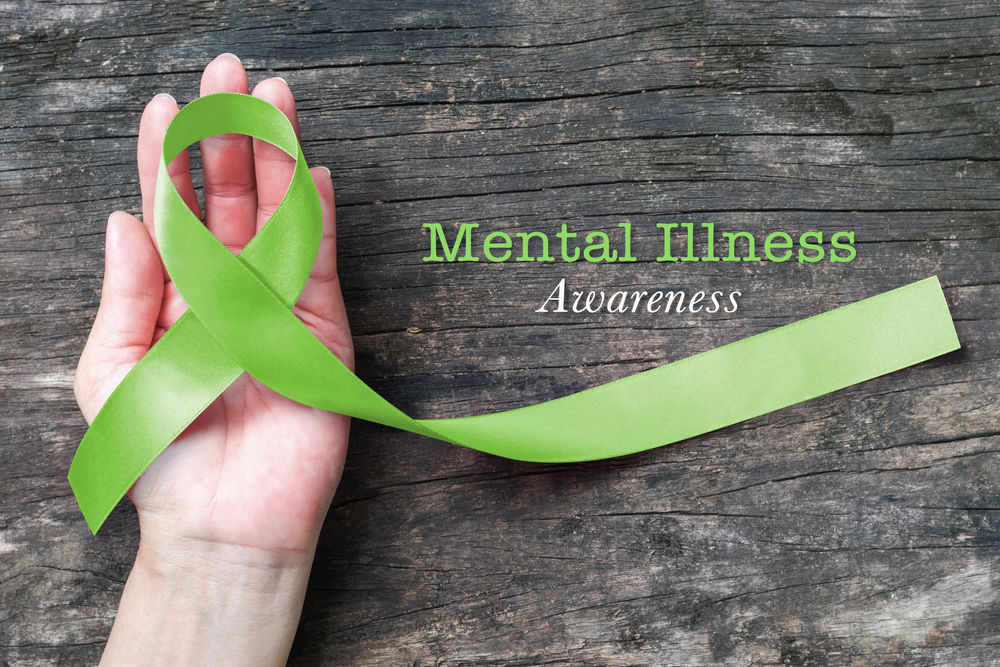
May is Mental Health Awareness Month
Every May since 1949, we are reminded of the importance of mental health. Mental Health Awareness Month hopefully raises awareness that more than 43 million people in the United States suffer from some kind of mental illness like anxiety, depression or obsessive compulsive disorder.
Although anyone can develop a mental health condition, people already struggling with a chronic pain condition are particularly vulnerable. Not only can the stress of such conditions elevate the risk, but the isolation that often accompanies chronic pain can further exacerbate incipient mental illness.
History of Mental Health Awareness Month
Originally recognized by the Mental Health America organization in 1949, Mental Health Awareness Month was an important step in the advancement of medical care for the mentally ill. In those days, the mental health field was rife with intense bias and malpractice.
The Mental Health America organization was founded by Clifford Whittingham Beers who was one of five children, all with mental health problems that led to institutionalization for various periods. He founded this groundbreaking organization with the intention of improving mental health care and raising social awareness of the plight of the mentally ill.
Every Mental Health Awareness Month since 1949 has had a unique theme that unites the many activities and events that are held during the month. These events often include well-recognized politicians and celebrities that expound on how mental illness has touched their lives. Additionally, Mental Health America also issues a mental health toolkit currently to further their outreach.
Mental Health and Chronic Pain
Most people assume that chronic pain is primarily a condition that is physical in nature, but psychology and neurochemistry play key roles in many chronic pain conditions. Not only can chronic pain be so intense that the simplest tasks become impossible, but the anxiety that the threat of another pain episode can be just as crippling.
One of the many tragedies of chronic pain is that it can accelerate the decline of mental health, and mental illness can worsen chronic pain symptoms. This is because many of the neurochemical pathways that chronic pain is processed are shared with those mechanisms involved in anxiety and depression.
That is why most chronic pain patients respond most positively to a multi-disciplinary treatment program that remediates pain symptoms concurrently with mental health issues. That may also be why one of the more effective therapies for chronic pain is tricyclic antidepressants.
Chronic pain does much more than reinforce mental illness mechanisms in the brain. It can also sap your life of many of the joys that might otherwise counter-balance negative thought patterns. Many chronic pain sufferers lose the physical ability or the desire to engage in hobbies or enjoyable activities.
This is further complicated by the fact that many chronic pain patients must quit their jobs or, at least, scale back their professional duties. This can be emotionally devastating as most people place a great of their self-worth on their jobs. Adjusting to a life without the accolades of professional achievement can be even more difficult for those in constant pain.
Loss of a job is painful enough, but the many hours of isolation that open you up to constant negativity may be just as detrimental to your health. It is easy for the many hours spent conjuring fears of the future which could include a considerable amount of pain to lead to anxiety and depressive disorders, which in turn, feed back into making chronic pain symptoms more severe.
Finally, there is the social aspect of chronic pain and mental illness. Both kinds of conditions carry with them a social stigma that can also contribute to isolation and a health decline. Human beings are, by nature, social creatures and maintaining a robust social life is essential for good health. Conversely, failure to maintain personal relationships can greatly detriment mental and physical well-being.
Raising Awareness of Mental Health and Chronic Pain Issues
Raising awareness about chronic pain and mental health issues begins with understanding these complex topics. You should try to educate yourself about the scope of these health care epidemics. In the U.S. alone, almost 50 million adults or 20 percent of the population suffer from pain that lasts more than 3 months, and 20 million suffer from high-impact pain that can disrupt daily activities.
You may also want to familiarize yourself with common chronic pain conditions.
- Arthritis—there are more than 100 types of arthritis, but all of them involve joint pain. Osteoarthritis is the most common and is the result of the deterioration of tissue like cartilage in the joints. Many of these joint pain conditions may progress to the point of debilitation.
- Fibromyalgia—this pain condition involves improper processing of sensory signals. Light touching or movements that would be innocuous in a normal person are interpreted as painful in a person with fibromyalgia.
- Back pain—one of the most common pain ailments is back pain. The pain may be related to the muscles, spinal joints or various nerves including the spinal cord. One study revealed that people with back pain or headaches were more likely to develop major depression.
If you or someone you love is struggling with a chronic pain condition, then take the time to get screened for a mental health problem. You may be surprised how easy it is, even for trained medical professionals to overlook a common mental health condition like anxiety or depression in a chronic pain patient.
In addition to getting a mental health condition properly diagnosed, you can take some encouragement from the fact that successful treatment for anxiety or depression usually leads to improvement in your chronic pain symptoms as well. If you do experience some improvement in one or more of your health issues, you may find that a hopeful sign for the future. It could be possible that the next therapy you try could help lessen your pain or push it completely into remission. Even if that doesn’t happen, keep in mind that another therapy that is being developed now could be the miracle you are looking for.
Article written by: Dr. Robert Moghim – CEO/Founder Colorado Pain Care
M.D. Disclaimer: The views expressed in this article are the personal views of Robert Moghim, M.D. and do not necessarily represent and are not intended to represent the views of the company or its employees. The information contained in this article does not constitute medical advice, nor does reading or accessing this information create a patient-provider relationship. Comments that you post will be shared with all visitors to this page. The comment feature is not governed by HIPAA, and you should not post any of your private health information.



